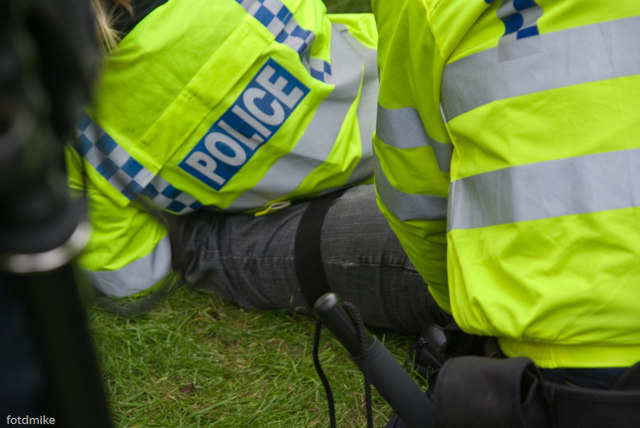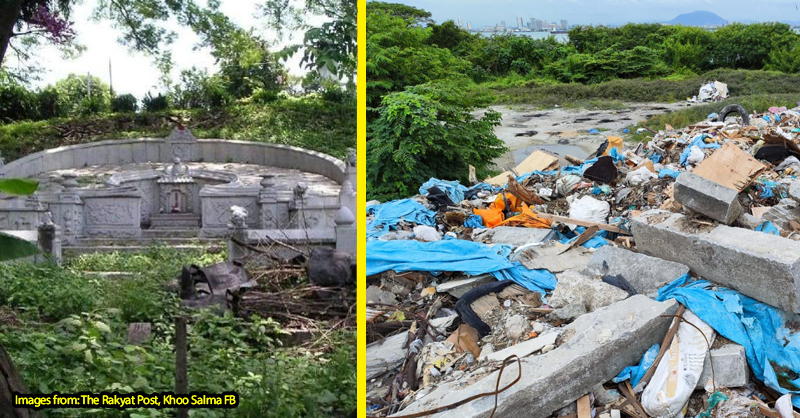The tragic story of the 2000 ‘silat’ terrorist group that killed two hostages

- 1.4KShares
- Facebook1.4K
- Twitter3
- LinkedIn1
- Email2
- WhatsApp20
July 2020 can mean a lot of things, like former Prime Minister Najib Razak’s conviction for abuse of power, the return of Covid-19 cases in double digits, and…the 20-year anniversary of one of the largest terrorist attacks in Malaysia. So today, we’ll be revisiting the incident, so we won’t forget the tragedy that kinda shaped counter-terrorism in Malaysia.
To be fair, terrorism isn’t a major issue in Malaysia now – we’re actually doing a pretty good job at curbing terrorism, what with our counter-terrorism units and active strategies in capturing potential terrorists before they go wild. So when you think about terrorism currently, it’s probably something involving the angmoh countries like the US instead of ourselves.
However, none of that means Malaysia’s totally rid of terrorist squads. What is concerning is that Malaysia does have terrorist groups, such as the Islamic State of Iraq and Syria (ISIS) and the Abu Sayyaf Group (ASG). Heck, there was even one born and bred in Malaysia terrorist group that once successfully organized an attack here 20 years ago, and that group was the Al-Ma’unah.
So before we get into the whole story of how they organized an attack, let’s answer one pertinent question: Who is the Al-Ma’unah?
Al-Ma’unah started out as an ‘innocent’ silat association

Yeah, you read that right. While it’s now more commonly known as a Malaysian militant terrorist organization, Al-Ma’unah – full name Brotherhood of Al-Ma’unah Inner Power – had an innocent start as a martial arts association, or more specifically silat.
It was founded by Mohamad Amin Razali in September 1998, who started combining the martial art with his own interpretation of Islam. To attract followers, he had even claimed to possess supernatural abilities and a willingness to impart his knowledge. Apparently, Amin had the ability to make an enemy freeze on the spot or disappear and reappear elsewhere, among other things.
“He can manifest illnesses that can drive people nuts, poisons, paralyze others, and a lot more.” – Al-Ma’unah vice president Zahit Muslim in 2001, as translated from Malaysiakini
And uh, yeah, those claims seemed to have worked, because Al-Ma’unah managed to obtain around 1,700 members in 2000, spread across countries like Malaysia, Singapore, Brunei, Saudia Arabia, and Egypt.

In the beginning, Al-Ma’unah was allegedly even supported by the Selangor Islamic Religious Department (JAIS). And there was once a time when the organization had a website, but of course, it’s been taken down now and we can’t find it on the interweb any longer.
In 1999, the organization was legally registered, listing Amin as its president. Not just that, its activities were also publicized in Malay magazines like PAS’ official newspaper Harakah.
Amin himself portrayed an image of kindness and generosity, where he was rather active in opening up free clinics for those seeking traditional treatment and arranged free religious classes for the members. So yeah, you can tell that Al-Ma’unah seemed quite legit back in its heyday. However, behind this wholesome image that the organization’s cultivated, something else was in the works.
Amin was already planning an attack on a military camp in Perak
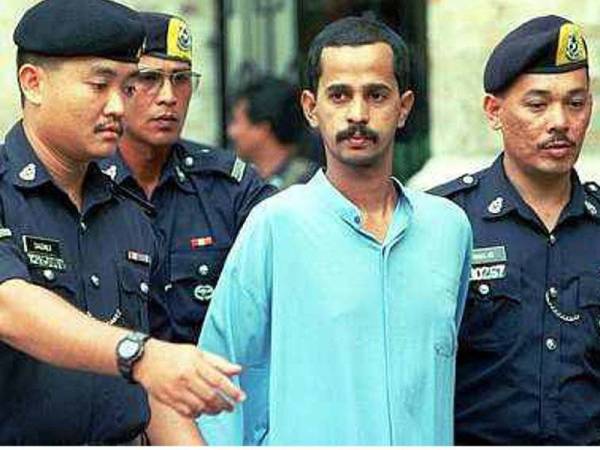
So while Amin was setting up free clinics and teaching silat to the members, he was also concocting an arms heist on an army camp and post in Gerik, Perak in July 2000. It turned out that Amin had intended for it to be a way to overthrow the government at the time, which was the Barisan Nasional (BN) administration led by none other than Dr. Mahathir Mohamad, and establish an Islamic state in Malaysia.
We can’t really tell how long it took for Amin to plan the heist, but it started with him instructing 20 Al-Ma’unah members to dress up in fake army uniforms, equipped with ranks, to infiltrate the army camp. And that apparently worked really well for them, because at the dawn of 2nd of July, 2000, these members in fake army uniforms managed to enter the camp in three Pajeros and successfully stole 116 firearms and around 7,000 rounds of ammunition, including:
- M16 rifles
- M203 grenade launchers
- Light machine guns
- Harnesses
- Trip flares
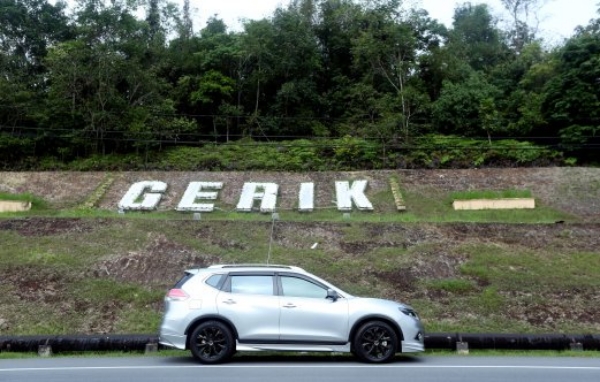
After that, the group set up a secret base in a forest area in Sauk Village near the camp, where Amin apparently proceeded to distribute the stolen firearms to the members for practice purposes. It was said that he planned to use the stolen firearms to target a Hindu temple at Batu Caves and some alcohol refineries in Shah Alam and Sungei Way.
Initially, the authorities were apparently not even aware that the armory at the military camp in Gerik had been robbed. They were was only alerted when citizens heard unusual gunshots in the forest. And once they found out that the military armory had been robbed, a team of officers – both police and army – was instantly deployed to cordon off Al-Ma’unah’s secret base in Sauk, planning to infiltrate it themselves.
“I’ve never had that kind of report ever in my whole service in the military. It sank on me very quickly that this was a big, huge problem.” – Former Malaysian Army Lieutenant General Zaini bin Mohamad Said, as quoted from Al-Maunah: The Malaysian Arms Heist
However, despite the authorities’ best efforts…
The infiltration mission soon turned into a hostage situation
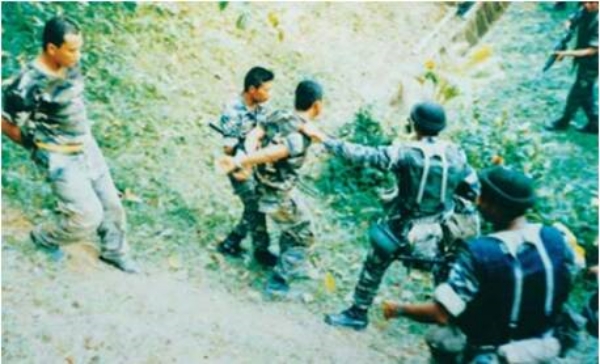
After the police and the army had cordoned off the secret base, they started to try to infiltrate the very base itself, but the plan was quickly thwarted when the Al-Ma’unah managed to take these people hostages:
- Police Sergeant Mohd Shah Ahmad
- Detective Corporal Raju Saghadevan
- Civilian Jaafar Puteh
- Corporal Matthew anak Medan
So then, what started out as an arms heist became a negotiation and rescue mission, leading to the whole thing becoming a stand-off between the Malaysian armed authorities and Al-Ma’unah. The stand-off lasted for four days.
“We do not know the motives behind this heist as of yet, but we are confident that the forces will gain full control of the situation.” – Former Prime Minister Dr. Mahathir Mohamad in 2000, as quoted from Al-Maunah: The Malaysian Arms Heist
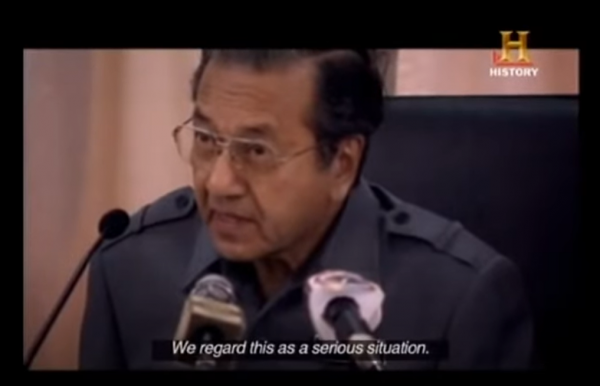
According to one of the hostages who survived, Mohd Shah Amad, the hostages were severely tortured during their four days in captivity. In the meantime, the authorities were also in the process of negotiating terms with Amin while looking for clues about their identity. Apparently, one of Amin’s conditions was for Mahathir to resign as PM, or they’d go a step further and cordon off the Kuala Lumpur city entirely.
It was on the last day of the stand-off that the authorities found a leeway into Al-Ma’unah’s base when they opened fire against an Al-Ma’unah, leading to a shootout. In the end, the Al-Ma’unah group eventually surrendered as they seemed to be largely outnumbered, with Amin being the last to do so. Unfortunately, in the process, two of the hostages, Saghadevan and Matthew, were killed.
All members of the group were brought to trial for treason
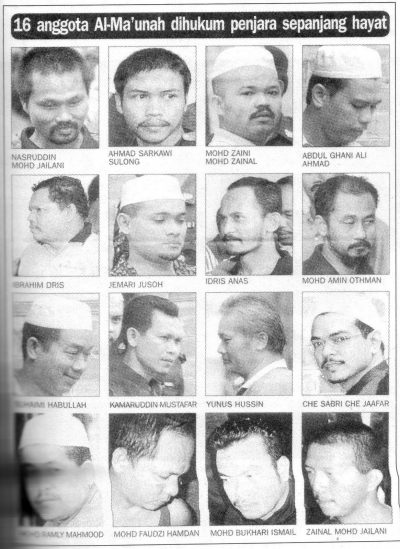
Naturally, those who were actively in the heist and hostage situation were eventually brought to court under the charge of ‘waging war against the King‘, as in treason, making them the first ever to be charged under such a crime. From the trial, Amin and two other lieutenants were sentenced to death, while the others were given life sentences, so they can’t ever get out of prison.
While it wasn’t the first time that Malaysia’s faced a terrorist threat, but the Al-Ma’unah incident’s considered to be the largest case of terrorism in this country thus far. From then on, our government officially banned Al-Ma’unah after they’d successfully apprehended other members of Al-Ma’unah.
“It was a deliberate act of terror.” – Former Chief Judge of Sabah and Sarawak Steve Shim Lip Kiong, as quoted from The Star
Following the incident, local authorities also clamped down hard on activities that even suggest a little of extremism. As of today, Malaysia has a Special Branch Counter-terrorism Division to bust potential terrorist groups, a pretty strict anti-terrorism law in SOSMA, and a counter-messaging center, to curb extremism.
In addition, laws on the sale of police and military uniforms were also tightened, where those who wanted to trade and produce such uniforms must have police permits to do so. This is avoid anyone from buying them to carry out illegal activities just like Amin and his subordinates did.
But the most shocking part of it all perhaps wasn’t that these people managed to sneak so easily into the military camp, but that apparently not all Al-Ma’unah members had the same ideals as Amin. In fact, they were said to have been Amin’s unknowing victims themselves and had no intentions of attacking the country like Amin did. But if anything, this only shows how easy it can be for people to fall under undue influence, and why we must always be wary to get influenced easily.
And while the tragedy that Al-Ma’unah inflicted may just a blot in some memories – maybe not even a blot in others – it serves as an important part of Malaysian history, even though it had only happened 20 years ago. After all, those who cannot learn from history are doomed to repeat it.
- 1.4KShares
- Facebook1.4K
- Twitter3
- LinkedIn1
- Email2
- WhatsApp20


